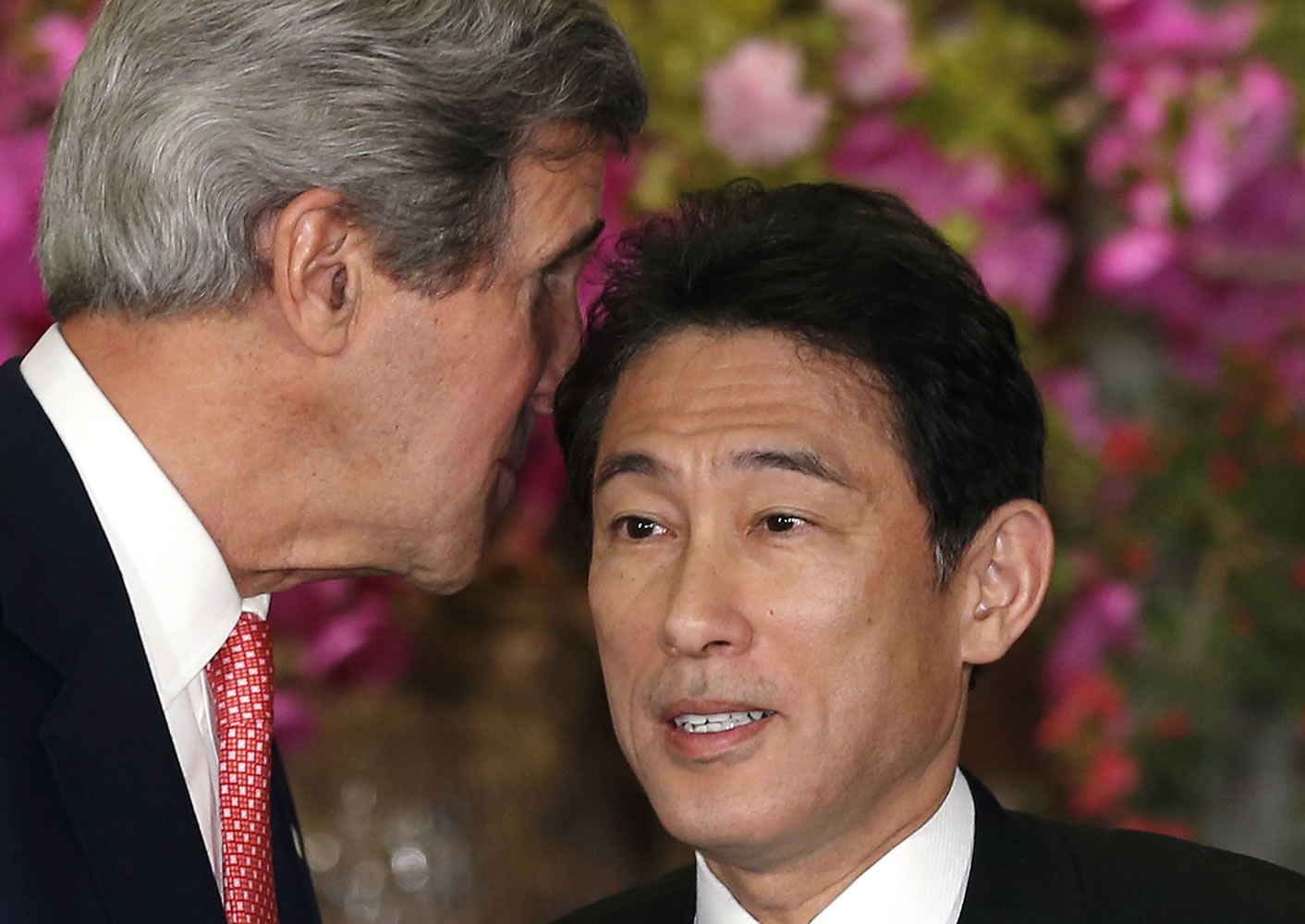TOKYO — Secretary of State John Kerry said Sunday that he was “not going to close the door” on the possibility of direct talks with North Korea, which would fit into his mission to find new approaches to long-festering foreign policy problems.
Kerry offered his vision of those issues in a 40-minute interview with a small group of journalists in Tokyo at the end of a tour that took him virtually around the world to address some of the most pressing matters of the day.
On the nine-day journey, Kerry pledged support to Syrian opposition leaders, announced a path toward restarting Israeli-Palestinian peace talks, issued a joint U.S.-China statement on climate change and consulted with partners in the talks on Iran’s nuclear program. The trip highlighted both Kerry’s ambitions and the obstacles he faces in tackling new and old foreign policy conundrums.
“If we’re going to start dealing effectively with rising levels of extremism in various parts of the world, we have to start showing some successes, and changing things for the better in some of these places where there are these kinds of tensions and conflicts,” Kerry said.
At every stop, however, the threat of an imminent North Korean missile launch overshadowed other topics. A trip that began with tough talk from Washington in response to the shrill threats from Pyongyang ended with Kerry and other senior U.S. officials softening their rhetoric and pushing diplomacy over escalation even as they braced for news of a launch.
“We are prepared to reach out but we need an appropriate moment, appropriate circumstance,” Kerry said.
One of Kerry’s primary goals was to enlist Beijing as a tougher interlocutor with the North Koreans. While he didn’t get as enthusiastic a response as he wanted from the Chinese, the main supplier of food and fuel to Kim Jong Un’s regime, he said it was nevertheless significant that Chinese leaders, who typically steer clear of joint appearances with Western officials, stood side-by-side with him to emphasize their desire for a nuclear-free Korean peninsula.
Kerry was more circumspect on the Middle East, where some welcomed his plans to try to restart long-dead peace talks and others mocked his attempt as a fool’s errand, given the hard-line stances of Israeli officials and the deep internecine divisions on the Palestinian side.
Only days after visiting Ramallah and announcing plans for greater economic development in the West Bank, Kerry already was faced with a setback with the resignation of Palestinian Prime Minister Salam Fayyad, a trusted friend who had been expected to help execute the plans.
One of the biggest challenges Kerry faces is in Syria, where an uprising against President Bashar Assad’s regime has turned into all-out civil war, with Iran-backed regime forces battling a fractured rebel movement that is increasingly reliant on al-Qaida-linked fighters. Things are just as bleak with the political opposition, which for more than two years has failed to coalesce into a shadow government ready to take charge should Assad’s government collapse.
“How committed will they be to a post-Assad government that will be protective of minorities, and diverse and democratic and embrace all of the people of Syria?” Kerry said. “There are a lot of questions that need to get answered before you go crashing in.”



